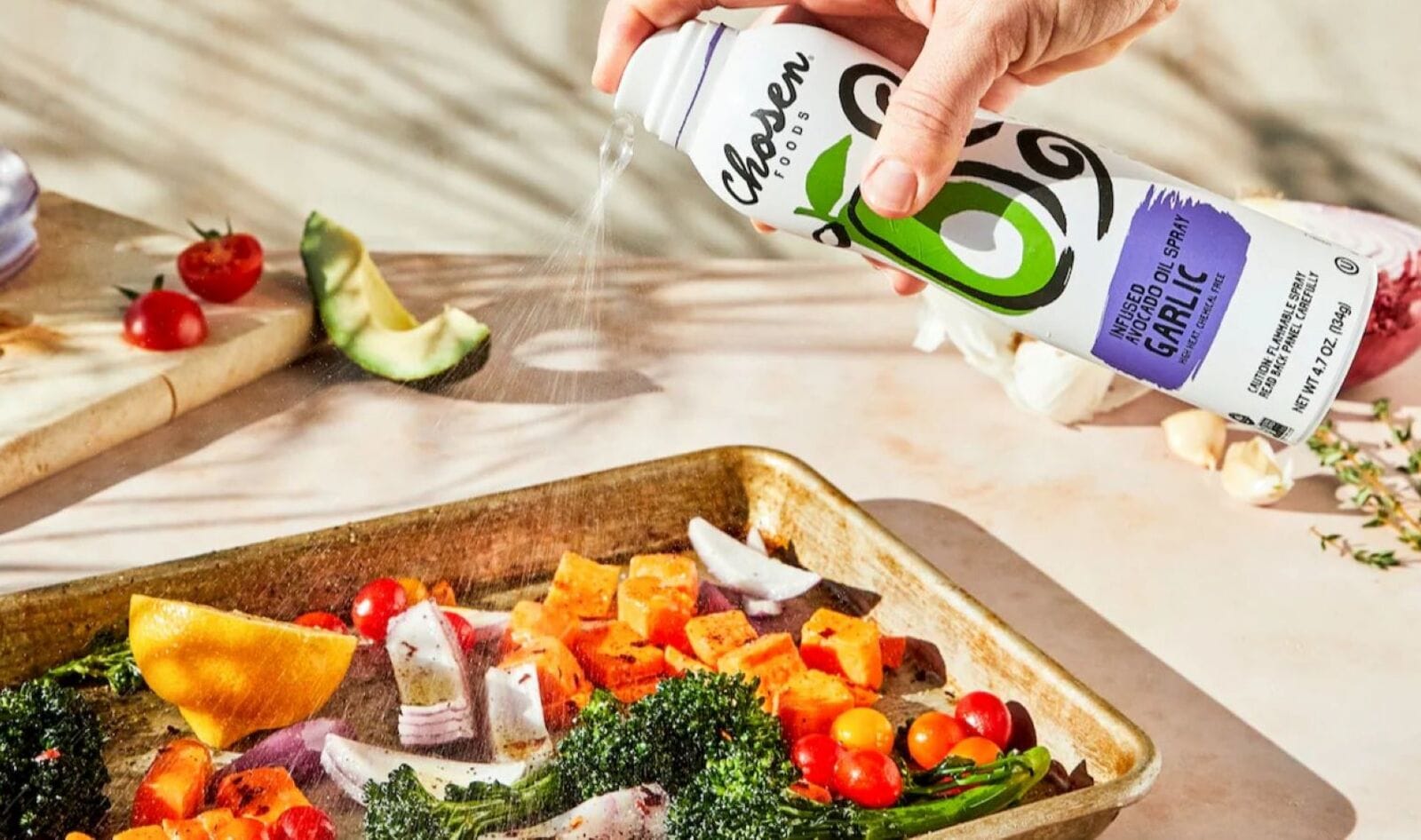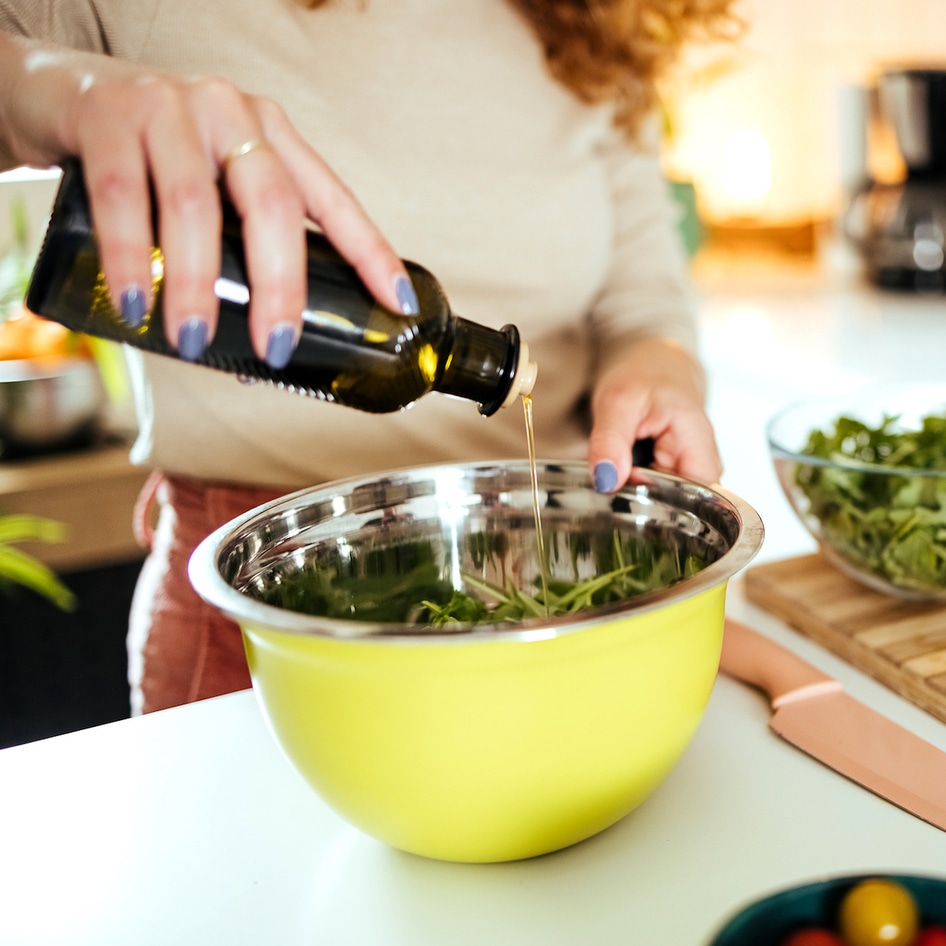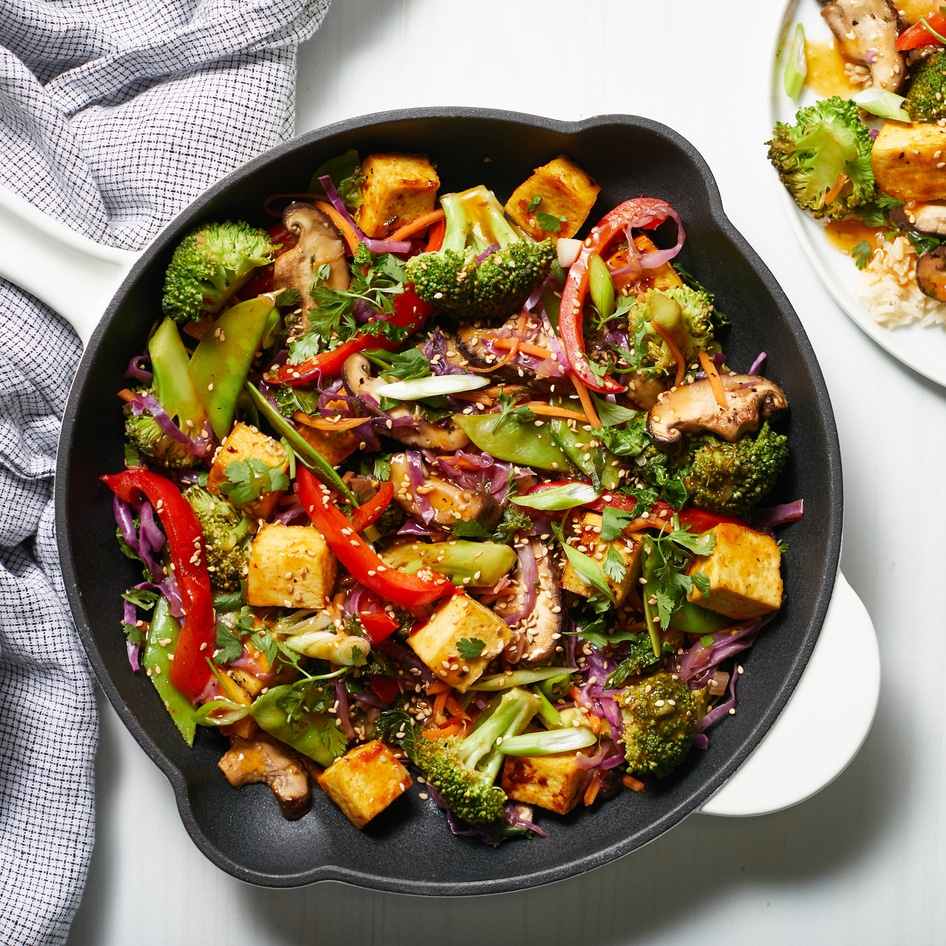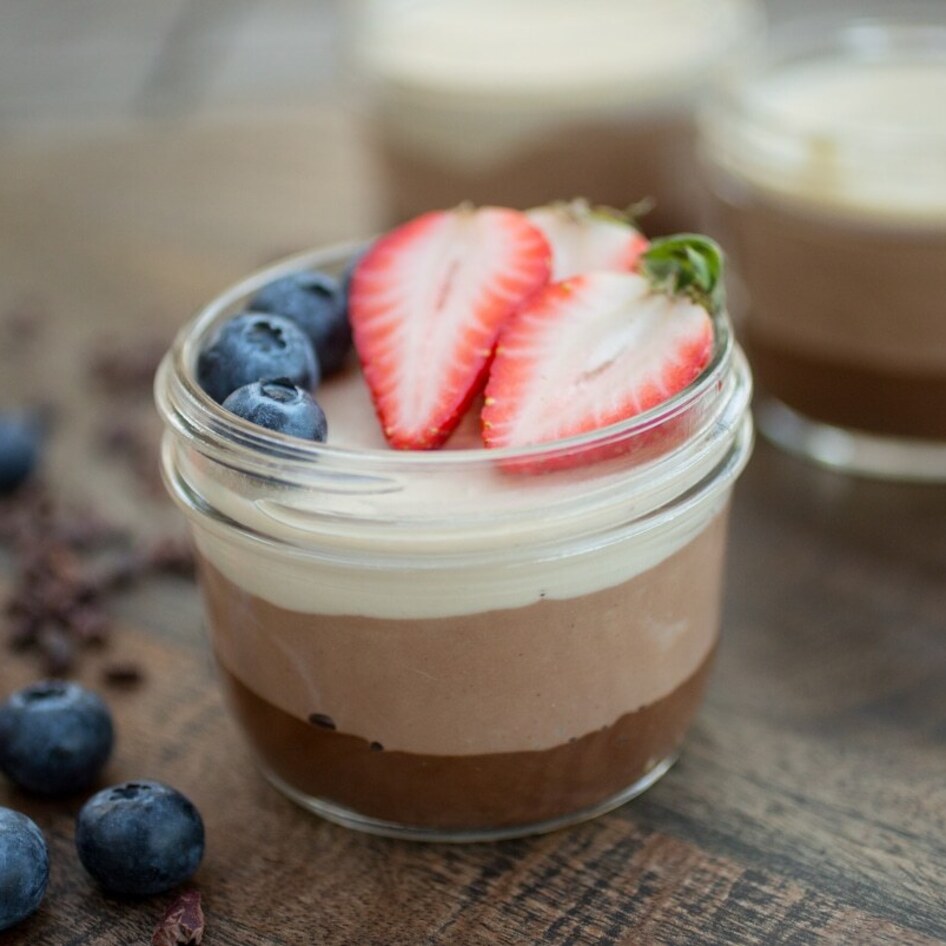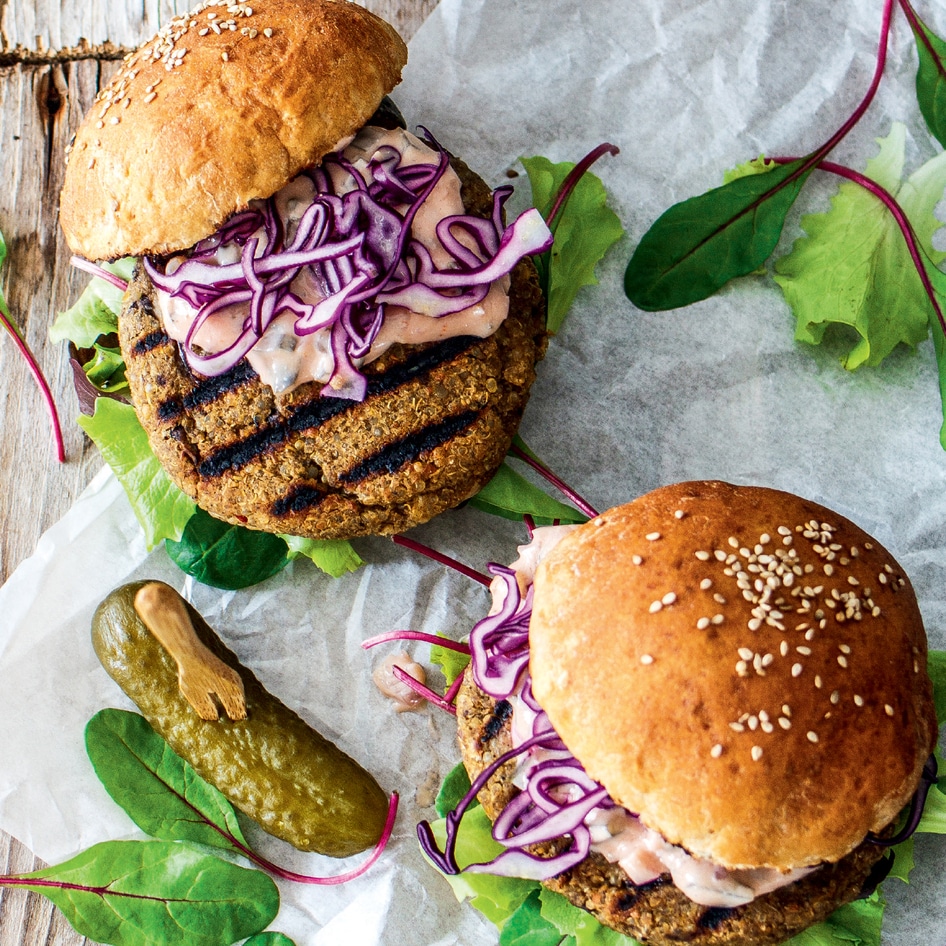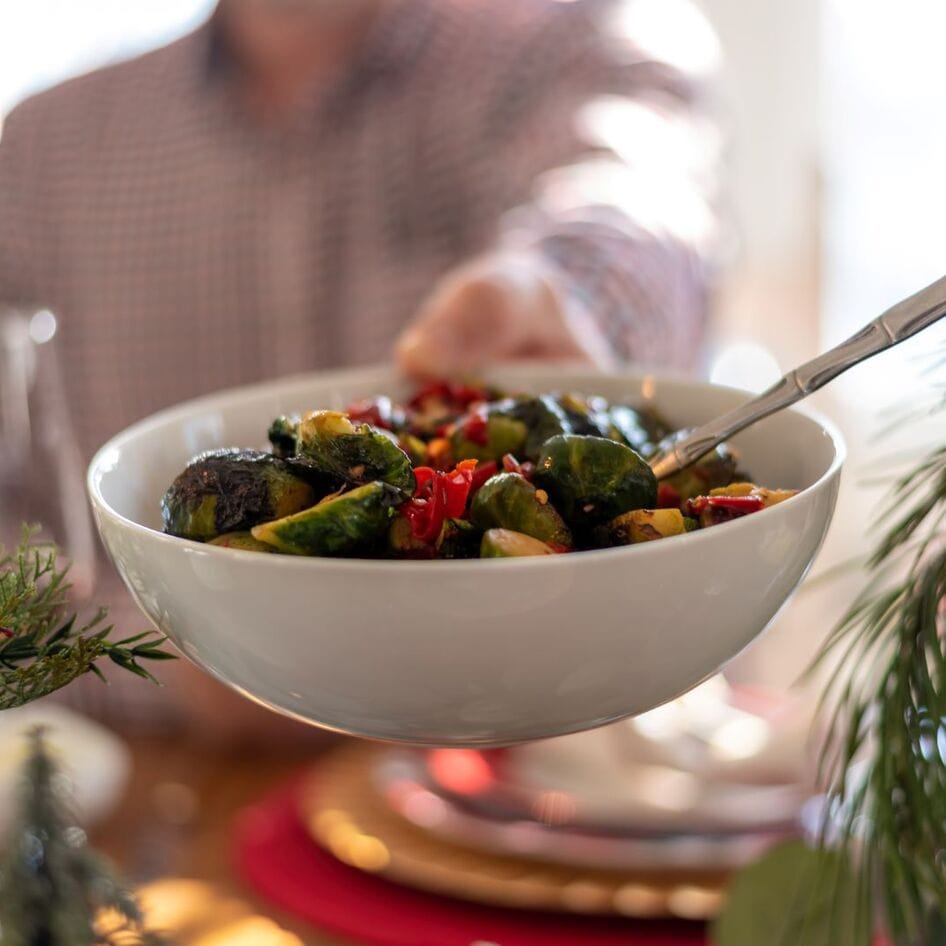Cooking sprays have become a staple in many kitchens, offering a quick and convenient way to grease pans without the mess or excess calories of traditional oils and butter. But while they may be a time-saver, many health-conscious consumers are left wondering: are cooking sprays actually healthy?
The answer isn’t entirely straightforward. According to experts, there are a few things to consider. Let’s take a closer look.
 Getty
Getty
What are cooking sprays?
Cooking sprays are typically made up of a combination of oil (like canola, olive, or avocado oil), an emulsifier (like soy lecithin), a propellant (such as butane, propane, or carbon dioxide), and sometimes anti-foaming agents. These ingredients are pressurized in a can, allowing the oil to be sprayed in a thin, even layer over cookware or food.
For people who are short on time or want to minimize kitchen mess, sprays are a convenient solution that make cooking and clean-up easier. Additionally, sprays offer a way to control portions more precisely and reduce the risk of over-pouring oil when cooking.
The appeal of cooking sprays largely comes from their low-calorie output. A one-second spray may contain as little as two to five calories, thanks to the small amount dispensed. This starkly contrasts the 120 calories in a tablespoon of olive oil.
Are cooking sprays healthy?
Not all aspects of cooking sprays are beneficial, and some come with potential health concerns. One of the biggest points of contention is the presence of chemical propellants. Many brands use gases like butane, propane, or carbon dioxide to dispense the spray. While these are considered safe for consumption by the US Food and Drug Administration (FDA), some consumers are understandably cautious about introducing substances typically associated with lighter fluid or industrial applications into their kitchens.
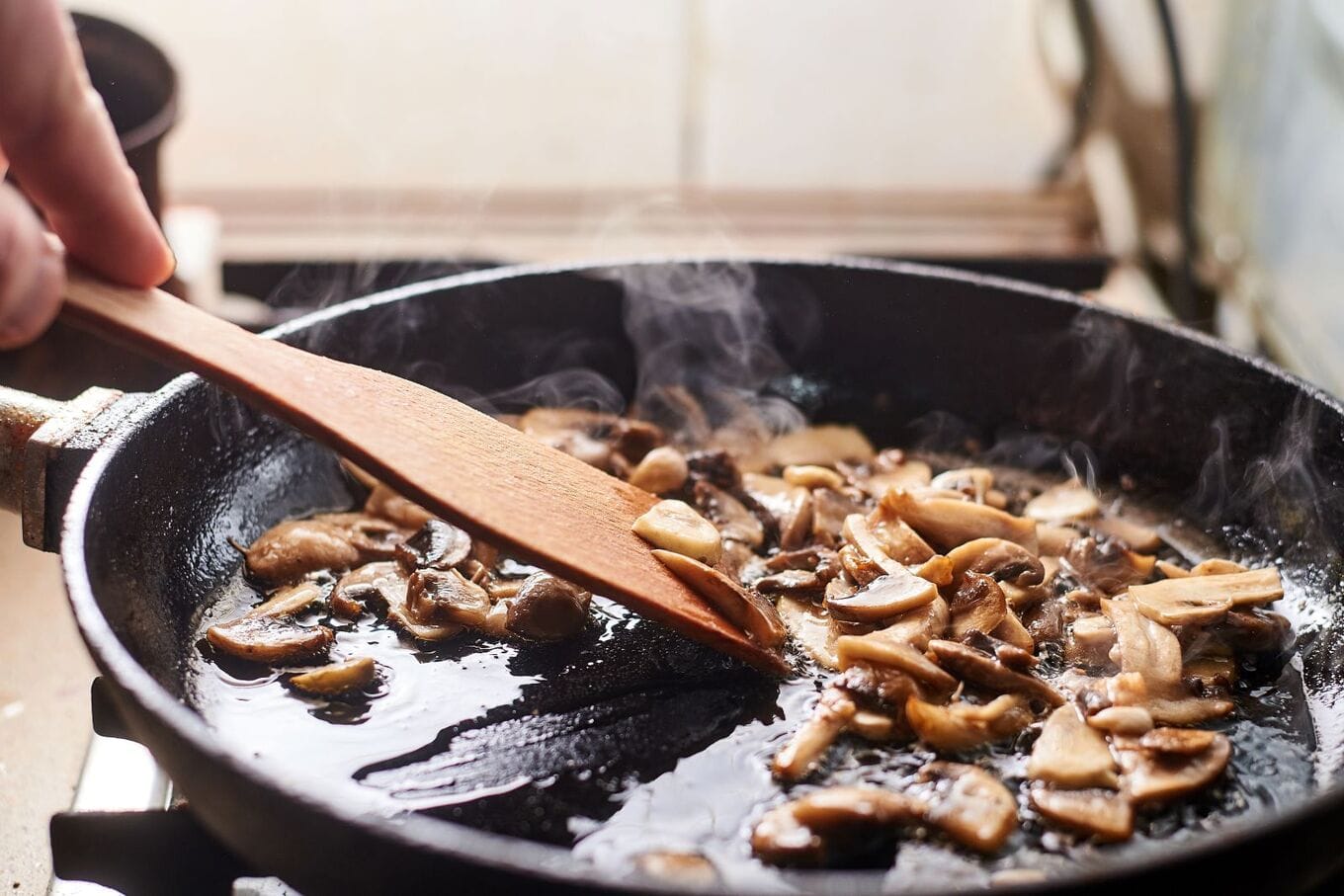 Adobe
Adobe
Other additives, such as anti-foaming agents, might also be problematic. Cooking sprays like Pam use dimethyl silicone to reduce the risk of foaming or splattering while cooking. While it is considered a generally safe food additive, the health implications of ingesting this ingredient have not been extensively researched.
Another big issue is the oil. “Cooking sprays are refined oils that have been pressurized in a spray can. Adding oil to foods, even in small amounts, adds calories to the food you’re making,” says Noah Praamsma, MS, RDN, nutrition education coordinator with the Physicians Committee for Responsible Medicine.
Refined oils are calorie-dense, but the FDA permits manufacturers to label products as “zero calories” if each serving is less than 0.5 grams. However, the listed serving on cooking sprays is far less than what most people actually use. As a result, users may be consuming more calories and chemicals than they realize.
“Cooking sprays bill themselves as low- or no-calories, but they do that using a trick with the serving size, which is often listed as ‘¼ of a second.’ Very few people only use that little, however, and the calories can add up,” Praamsma points out.
What oil is best for cooking?
Nutritionally, cooking sprays typically offer very little benefit. Many commercial sprays prioritize long shelf life and low volume over nutrient content. This makes them less suitable for those seeking the nutritional advantages of whole food-based fats.
BECOME A VEGNEWS VIP: Get exclusive product deals, freebies, and perks galore!
“Adding oil to foods, even in small amounts, adds calories to the food you’re making,” Praamsma says. “All fat and oil have nine calories in every gram, which comes out to about 40 calories per teaspoon. This makes added oils, even in the form of cooking spray, something to avoid.”
That said, not all cooking sprays are a no-go. “The one thing cooking sprays have going for them is that they aren’t fat from animals, which tends to be high in saturated fat and can raise your cholesterol and increase your risk of heart disease,” Praamsma adds.
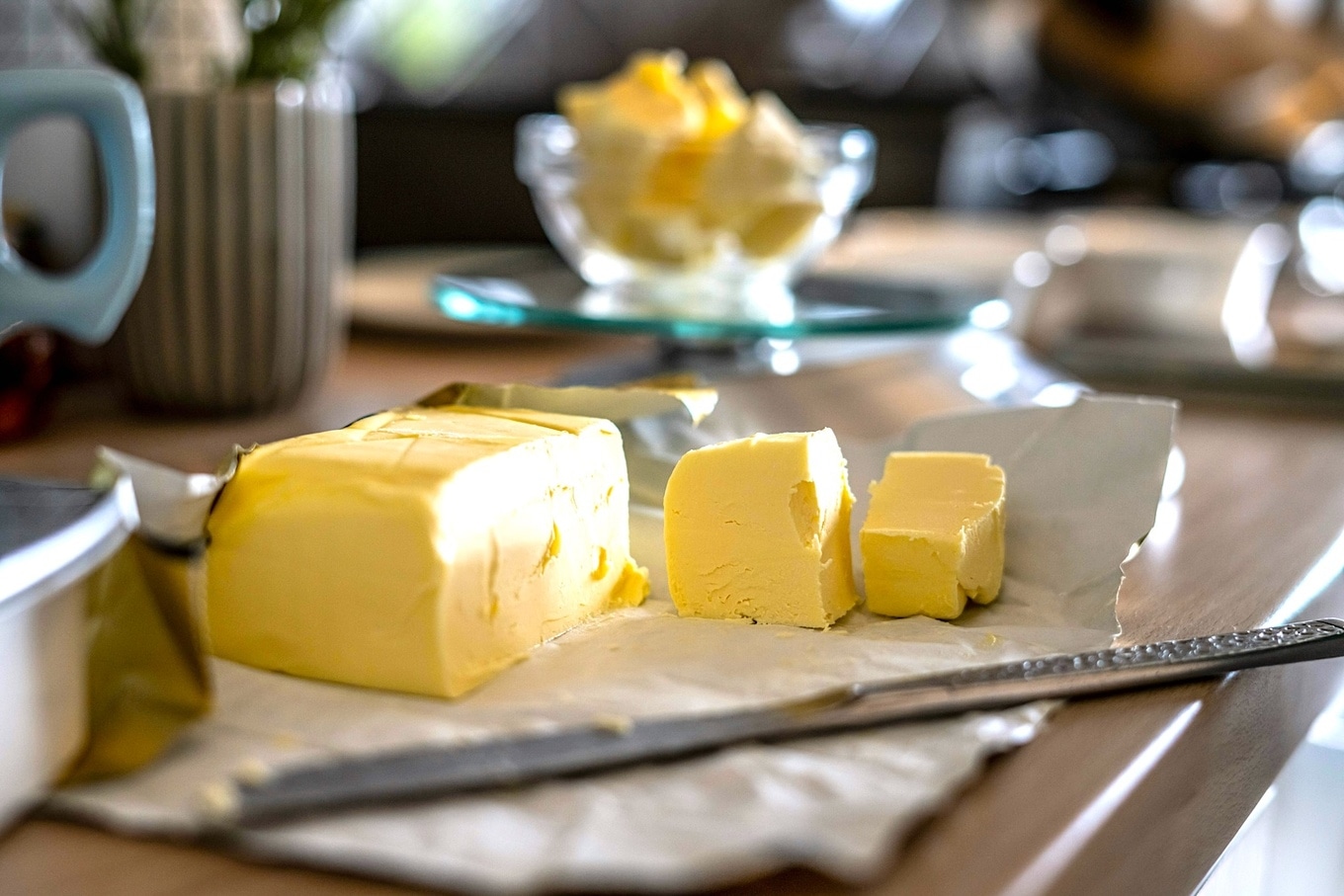
Oils used in cooking sprays are primarily made up of unsaturated fats, whereas animal-based fats like those found in butter, cheese, and meat—as well as tropical oils like coconut and palm—are mostly saturated fats. Numerous studies over the past several decades have shown that replacing saturated fats with unsaturated fats can reduce the risk of heart attacks and death from heart disease.
According to Harvard University and the American Heart Association (AHA), using cooking oils containing better-for-you fats and less saturated fat can be a good source of heart-healthy fat if you use them wisely and in moderation. “Replacing ‘bad’ fats (saturated and trans) with ‘good’ fats (monounsaturated and polyunsaturated) is smart for your heart,” the AHA says on its website.
A recent study from the Harvard T.H. Chan School of Public Health also suggests that replacing butter with plant-based oils—including commonly criticized seed oils like canola and soybean—may lower the risk of death by 16 percent. In contrast, high butter consumption was associated with a 15-percent increased risk of mortality.
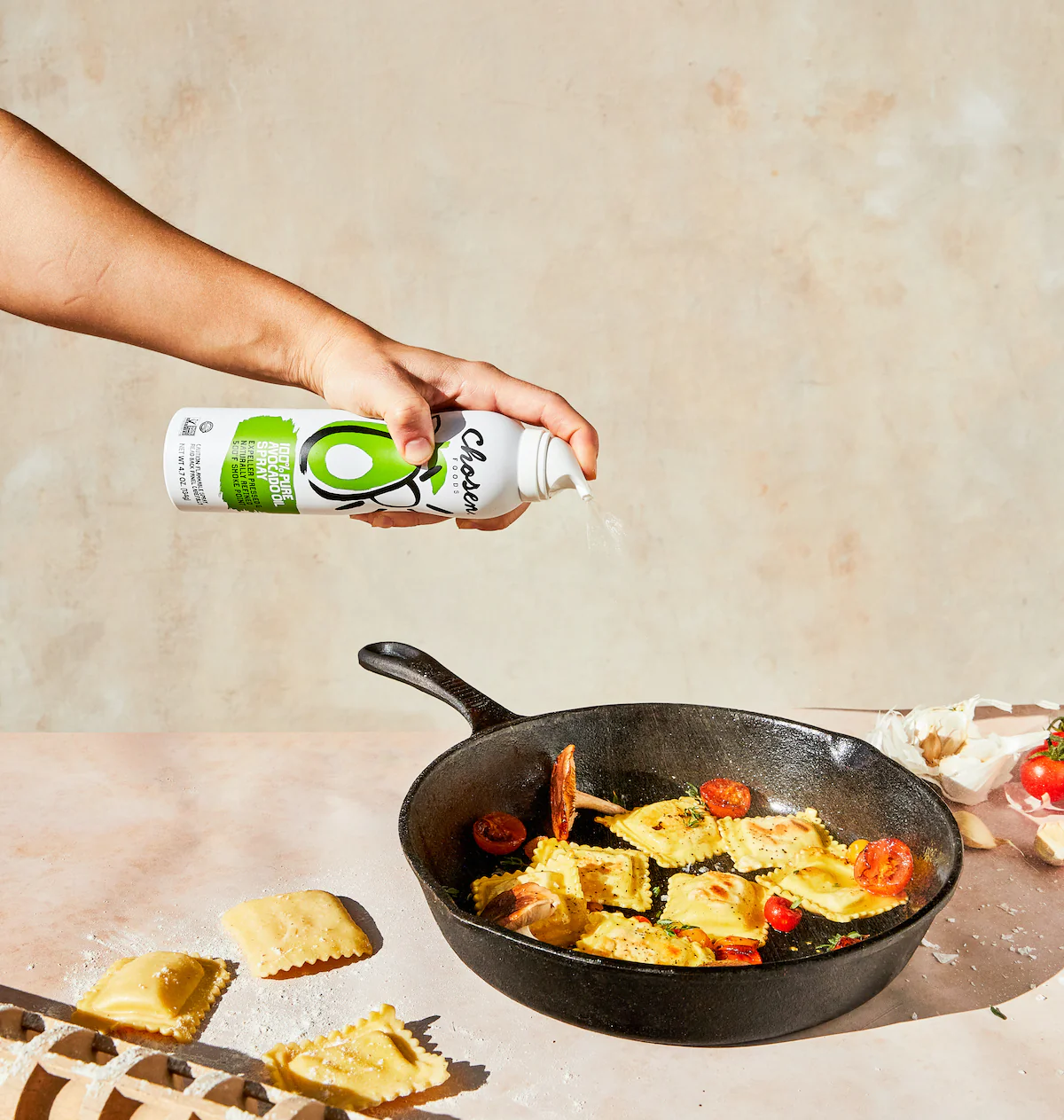 Chosen Foods
Chosen Foods
Sprays made with oils like avocado, coconut, or extra virgin olive oil may retain some beneficial properties. In recent years, cleaner labels and health-conscious branding have led to more options with minimal ingredients. Some, such as Chosen Foods’ avocado oil, contain just oil, with no propellants or additives. These products typically use air pressure instead of chemical propellants, making them a more natural alternative. Consumers who are mindful about ingredients should opt for sprays that are organic, all-natural, or labeled as propellant-free.
But for most people, Praamsma suggests that cooking spray and added fats or oils of any sort should be avoided or minimized. “While a few oils, like high-quality extra-virgin olive oil, have some small benefits from their polyphenols (must be eaten ‘raw’ or not cooked), the far better way to consume the fats we need is through whole foods.”
Alternatives to cooking sprays
While cooking sprays can offer a quick, low-calorie way to prevent sticking, they’re not the best choice for regular use. According to Praamsma, whole-food fats like avocados, nuts, and seeds provide essential nutrients and support overall health when used in moderation. Choosing real, minimally processed fats over sprays is a better long-term approach for both nutrition and flavor.
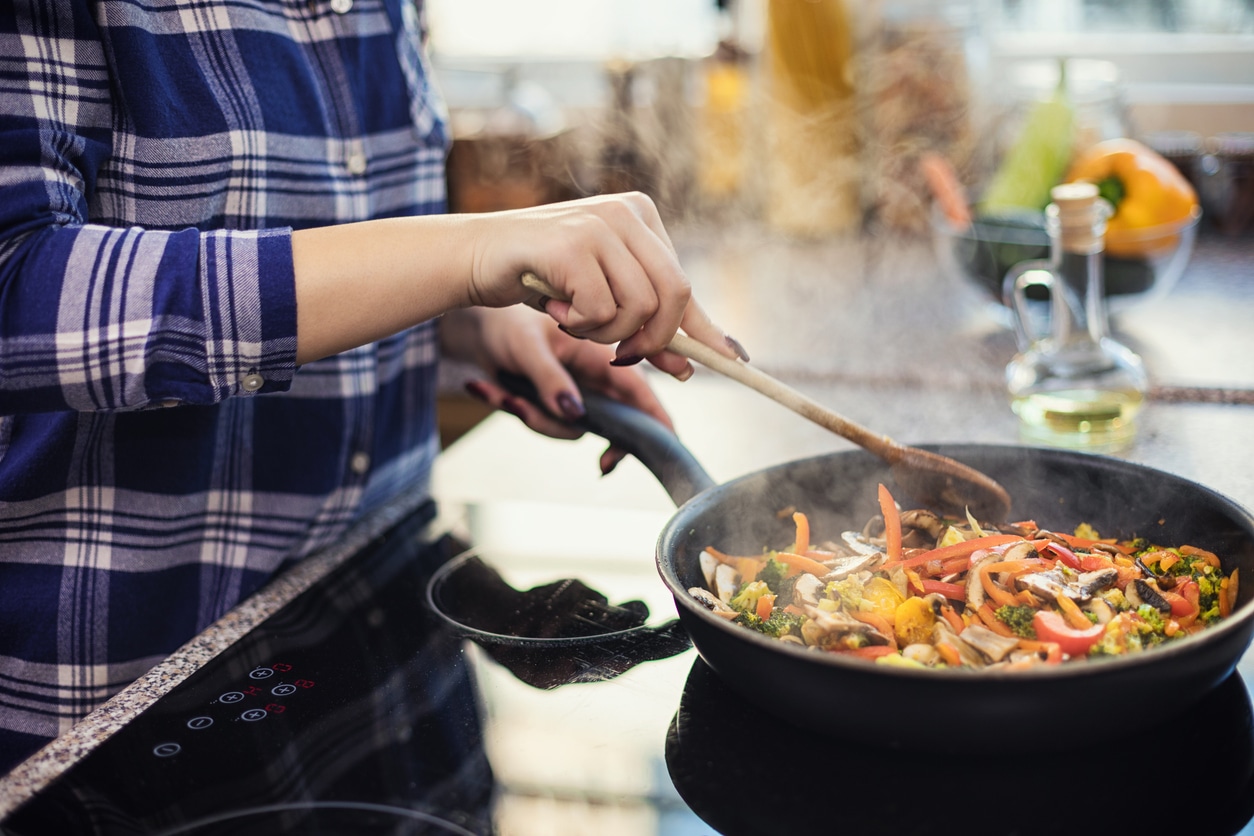 Getty
Getty
If you like the convenience of cooking spray but want a more natural approach, you can make your own cooking spray at home. Simply combine a high-quality oil, such as avocado or olive oil, with a bit of water in a reusable spray bottle. Shake before use, and store in a cool, dry place. This gives you full control over what you’re consuming, with no hidden chemicals.
For those who prefer to avoid oil sprays altogether, there are simple alternatives to keep your food from sticking to pans. “Customers can benefit their health by looking for alternative ways to keep their food from sticking when cooking,” Praamsma suggests. Non-stick cookware, silicone baking mats, paper muffin cups, and parchment paper are calorie-free options for easy, non-stick cooking.
Additionally, you can look for whole-food ingredients to help add moisture to cooking and baking without added oil. “Oil in baked goods and in just about any other type of recipe can be replaced one way or another: applesauce, mashed bananas, and other fruit purées can replace oil,” Praamsma says.
For more plant-based stories like this, read:
JUMP TO ... Latest News | Recipes | Guides | Health | Subscribe

